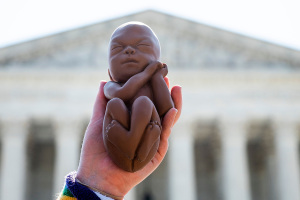'The Great Divorce'
A Guide to the Great Books
As a Christian Post reader, you know how much I stress the importance of reading truly great books. Granted, great works of literature—especially those that are centuries old—can be intimidating. But sometimes all it takes to bring these works to life is a great teacher.
That is why I am so excited to tell you about the "Great Books Audio CD" series by my friend Dr. Ken Boa. In the audios, Ken analyzes and discusses from a Christian perspective the classic works that have helped shape Western civilization: books like Augustine's Confessions, Milton's Paradise Lost, and one of my own favorites, Dostoyevsky's The Brothers Karamazov.
For a guy who confesses that he used to read the comic-book versions of classic literature for school book reports, Ken—now one of the great Christian scholars of our day—has a deep understanding of some of the greatest books ever written. Besides his insightful analysis of the books, Ken also provides extensive background materials on the authors and the influences that shaped their thinking.
Ken has started off this wonderful series with C. S. Lewis's book The Great Divorce. "I always like to start with Lewis," he says, "because he's so easy to read and so attractive to a wide readership for some very good reasons"—such as his ability to combine logic and imagination.
Lewis also had a gift for shooting down the modernist ideas that dominated so much of the twentieth century and for showing the power and attractiveness of goodness—which is exactly what he does in The Great Divorce.
Boa points out that here, as in his other books, Lewis challenged the idea popularized by Marx, Darwin, and Freud that higher things are only a copy of lower things—that is, that ideological beliefs are based only on economic realities; that human beings are only animals; that love is only a form of lust, and so forth. This idea, even more pervasive today, reduces us all to our basest instincts.
Lewis directly took on the formula by reversing it—by demonstrating that "heaven is the real place, and our world is the shadow." In The Great Divorce, Lewis tells a story in which a group of condemned souls gets a chance to visit heaven. What they find out is that heaven is more terrifyingly real than anything they have ever encountered. Everything in heaven is—for the ghostly visitors—unbearably solid, bright, substantial . . . to the point where they can't even pick up an apple or bear to walk on the blades of grass.
I don't want to give away the surprises packed into The Great Divorce, but suffice it to say that the only hope these visitors have of becoming permanent residents of heaven is to become real themselves. And Lewis makes it clear that for them and for us, the process of sanctification, of becoming real, is an extraordinarily painful but ultimately glorious transformation.
That's just a taste of the riches to be found in this CD. And in future "BreakPoint" broadcasts, I will be sharing more about Ken's insights on other great works of literature. Visit our website, < a href=http://www.breakpoint.org/>BreakPoint.org, for more information on how you can subscribe.
Whether you are new to the books Ken is talking about, or you have read them many times, Ken is an excellent guide to some of the most important books of all time—books that have helped shape Western civilization and books that will shape you as well.
_________________________________________________
From BreakPoint®, September 5, 2007, Copyright 2007, Prison Fellowship Ministries. Reprinted with the permission of Prison Fellowship Ministries. All rights reserved. May not be reproduced or distributed without the express written permission of Prison Fellowship Ministries. "BreakPoint®" and "Prison Fellowship Ministries®" are registered trademarks of Prison Fellowship



























